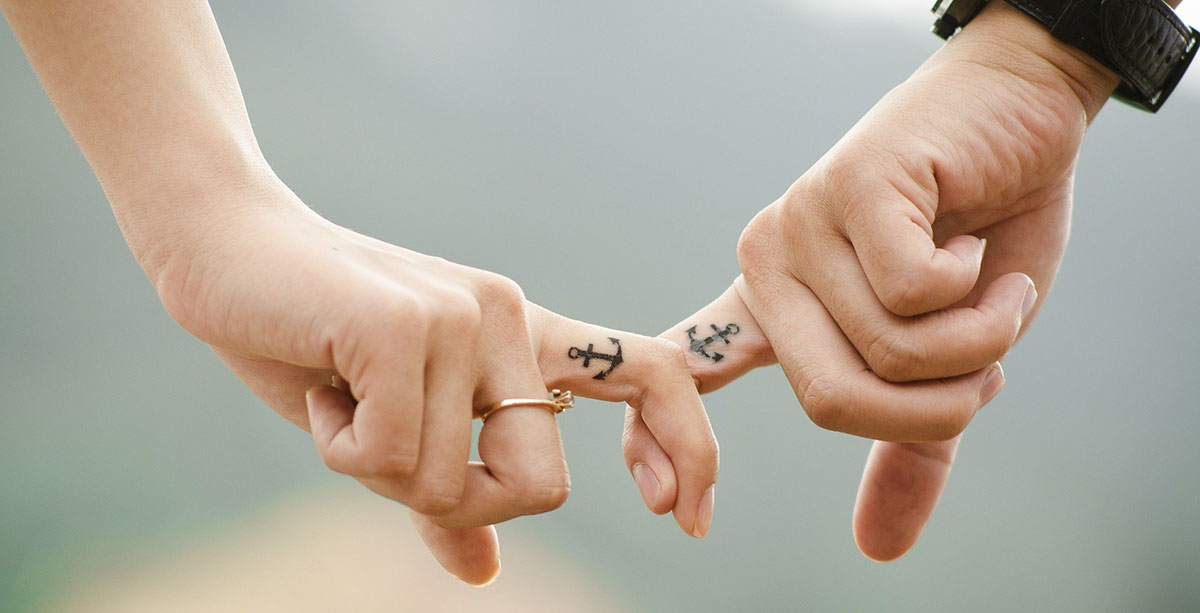Couples Attachment Issues
Attachment issues from childhood affect so much of our lives, especially our relationships with others. We all love to be part of a romantic couple, but if we’ve been in any kind of relationship before, then we know that many issues can arise and lead to conflict. That’s why it is so important to take a look at our inner lives and work through concerns both on our own and together with our partner. In today’s blog post therapist Teyhou Smyth discusses how attachment issues affect couples and how to address them.
 When we enter an intimate relationship, whether we have a complementary attachment style to our love interest is not on the radar in the least, but ultimately it is the factor that influences relationships the most.
When we enter an intimate relationship, whether we have a complementary attachment style to our love interest is not on the radar in the least, but ultimately it is the factor that influences relationships the most.
Couples do not need to have an identical attachment style to function successfully in a relationship but having an awareness of the ways one’s style can impact the relationship increases the odds of satisfaction and longevity.
Attachment develops as a result of nature and nurture. It begins in utero and is influenced by maternal experiences and genetics. It is then impacted during early childhood in the ways caregivers respond to our cries in infancy, how our needs are met, and the way we are treated.
Throughout our lives, relationships with family, friends, and others play into our attachment style, reinforcing or correcting our innate understanding of how other humans respond to us.
Through this collection of experiences and genetic wiring, our attachment style is borne. Attachment styles are classified as secure, avoidant, anxious, or disorganised.
How Couples’ Attachment Styles Impact the Relationship
Two people with secure attachment are likely to have a greater sense of stability in their relationship. Not to say that the relationship will be perfect or without strife, but the baseline ability to trust the process of human relationships is a good indicator for success.
Even with two securely attached people, the need for communication and problem solving is crucial for a healthy relationship. For couples in which one (or both) people have anxious, avoidant, or disorganised attachment, communication can be difficult.
Communication Issues
Attachment style can impact the way couples communicate, and often it is as much about what is unspoken as what is said aloud. People who struggle with anxious or avoidant attachment styles may read too much into non-verbal communication or make assumptions about their partner’s intent or feelings based on underlying beliefs about themselves.
Someone who has an avoidant attachment style may struggle with confrontation and this can result in resentments and perpetuated miscommunication between couples.
Problems with Trust
Trust is a primary challenge for people with insecure attachment styles. It may not even be obvious that the underlying issue is trust-related, but it manifests in murky ways like not fully investing in a relationship or keeping emotional distance for self-protection.
More obvious ways trust is affected is through jealousy, insecurity about a partner’s dedication, and feeling preoccupied by self-doubt. Insecure attachment can even contribute to infidelity, as there can be a sense of relationship futility, boredom, and challenges with getting one’s needs met.
Positive Outcomes for Differing Attachment Styles in Relationships
Differing attachment styles in a relationship does not mean imminent doom, it just requires extra intention and effort to work through the problem areas.
Sometimes couples who have attachment differences can experience personal growth because of their work in a relationship, and this can mean greater couple satisfaction and a healthier sense of self-worth.
While no one should enter a relationship with the expectation of healing personal pain, (a setup for failure), sometimes it can become a joint effort and a happy side effect if two people are committed to mutual growth.
Healing Old Wounds
Couples who begin to explore the way their attachment styles affect their relationship may find that it helps reframe a lot of past life events, including prior relationships and lessons learned in childhood.
When individuals are doing their own attachment work within a safe, loving relationship it can offer a lot of healing. The work is two parts; one’s own journey toward exploring self-worth and having a safe place to practice healthy attachment behaviours within a committed relationship.
Learning to Trust
One of the most beautiful aspects of couples growing together and doing attachment work is the mutual trust that can be built.
Learning how to communicate and get one’s needs met effectively, gaining a greater understanding of how attachment directs relationship behaviours and finding workarounds can disrupt insecure attachment and offer new, healthier experiences.
Even though our innate attachment style is hard-wired, we can make informed decisions about thoughts, feelings, and behaviours that can shape the quality of our relationships with ourselves and others.
Couples who have differing attachment styles may find that the best is yet to come when they are open to exploring attachment together.
[This blog post originally appeared on Teyhou’s website www.livingwithfinesse.com ~ some content may have been modified for the UK context.]
